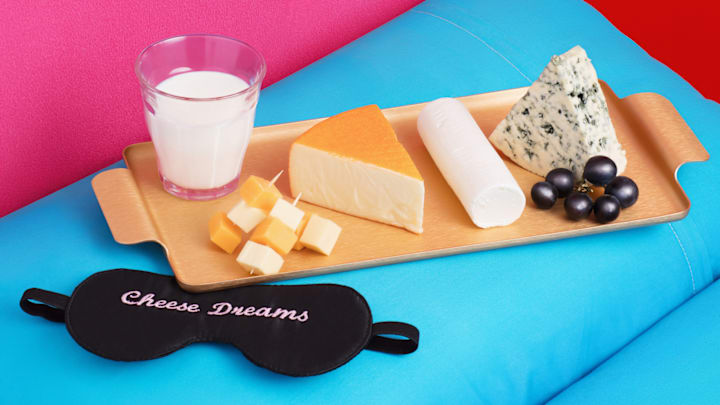Getting paid to eat and sleep is a dream come true for some people. That’s the description of a new job listing from SleepJunkie—though the actual work may involve just as many nightmares as dreams.
As Food & Wine reports, the sleep tip and mattress review guide is looking for people to join a study examining the impact of cheese consumption on sleep quality. For three months, subjects must agree to eat cheese before going to bed. The following day they will record their experiences, noting changes in sleep quality, energy levels, and any unusual dreams. Participants will receive $1000 at the end of the trial, plus compensation for their late-night dairy diet.
SleepJunkie aims to answer a question many fromage fiends have asked: Will working on my night cheese really give me nightmares? This idea has been around for a while—it’s even alluded to in Charles Dickens’s A Christmas Carol—but its accuracy is debatable. What little research has been done on the matter suggests that cheese is no more likely to cause bad dreams than other late-night snacks. A 2005 study by the British Cheese Board found that, of the participants who remembered their dreams, none reported nightmares after eating cheese before bed. The study came with a few caveats, however—the main one being its biased source.
Unlike the British Cheese Board, SleepJunkie has no reason to encourage your late-night cheese habit—but they do have a vested interest in telling you how to get a good night’s sleep. If cheese before bed is already part of your schedule—or if you want it to be—you can apply for the gig on their website. To qualify, you have to commit to sleeping alone and on a consistent schedule for three months, you must be at least 21 years old, and you can’t be lactose intolerant. You will also be required to own a smartwatch that can track your sleep and health data throughout the study. Applications close on February 10, with the three-month cheese binge beginning in March.
[h/t Food & Wine]
